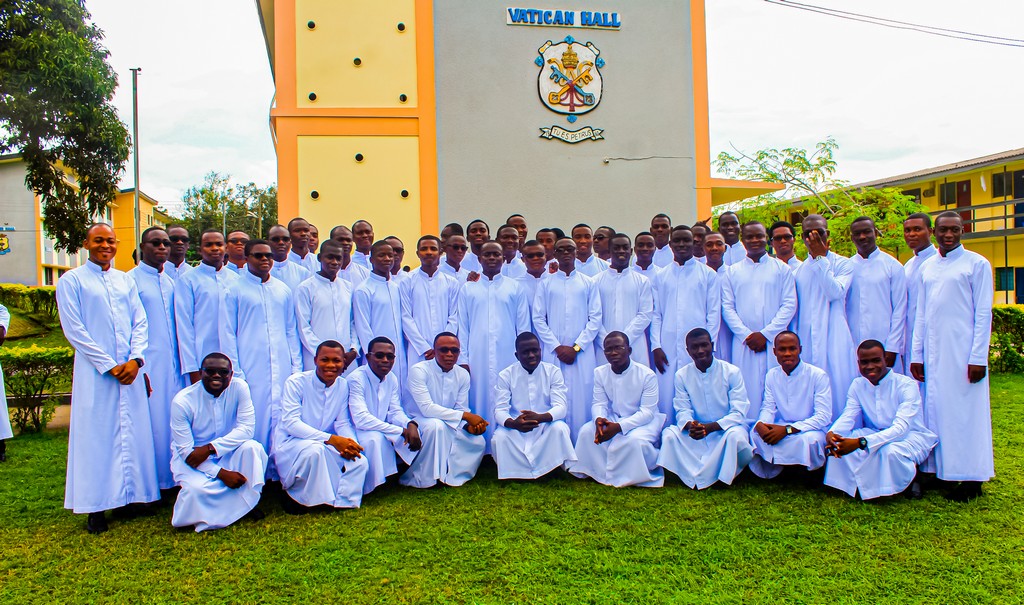Spiritual Formation
Spiritual Formation
- Human formation leads to and finds its completion in spiritual formation. Human formation continues in conjunction with and in coordination with the spiritual, intellectual, and pastoral dimensions of formation. It steadily points to the centre, which is spiritual formation. “For every priest his spiritual formation is the core which unifies and gives life to his being a priest and his acting as a priest” (Pastores dabo vobis). The spirituality cultivated in the seminary is specifically priestly. Seminary formation identifies characteristics and practices that foster spiritual formation including:
- Holy Eucharist: Spiritual formation is first and foremost a participation in public worship of the Church that is in itself a participation in the heavenly liturgy offered by Christ, our great high priest. As source and summit of the Christian life, the daily celebration of the Eucharist is the “essential moment of the day.”
- Sacrament of Penance: The Sacrament of Penance fosters the mature recognition of sin, continuous conversion of heart, growth in the virtues, and conformity to the mind of Christ. The frequent celebration of the Sacrament of Penance is aided by the practice of a daily examination of conscience.
- Liturgy of the Hours: Through the Liturgy of the Hours, seminarians learn to pray with the Church and for the Church. They unite themselves with the Body of Christ in unceasing praise and petition.
- Spiritual Direction: A regular meeting (at least once a month) with an approved spiritual director is an essential part of spiritual direction, especially in arriving at the interiorization and integration needed for growth in sanctity, virtue, and readiness for Holy Orders.
- Bible: Receiving the Word of God proclaimed and preached in the Church or the quiet and personal assimilation of that holy Word in lectio divina enables those in formation to hear God’s communication to them as a transforming challenge and hope.
- Devotions: Devotional prayer, especially centered on Eucharistic Adoration, the Blessed Virgin Mary—in particular, the rosary— and the saints, assists seminarians in assimilating the mystery of Christ and hearing the invitation to live that mystery in the particular circumstances of their own life.
- Celibacy: Spiritual formation in celibacy cultivates the evangelical motivations for embracing this commitment and way of life: the undivided love of the Lord, the spousal love for the Church, apostolic availability, and the witness to God’s promises and kingdom.
- Solidarity: Seminarians are to have a spiritual formation grounded in Trinitarian communion that leads them to solidarity with others, especially those most in need, a commitment to justice and peace, a reciprocal exchange of spiritual and material gifts, and an authentic missionary spirit expressed in a willingness to serve where needed.




